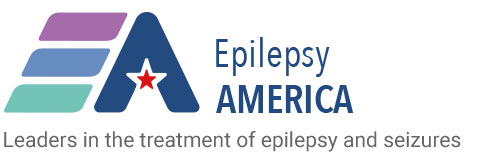Specialty Program
Women with Epilepsy
Women with epilepsy face unique concerns and challenges; these include issues with reproductive health, hormonal fluctuations, contraception, pregnancy, and menopause. Understanding these issues in epilepsy that are particular to women can be very important to help optimize their epilepsy management and overall well-being.
Hormonal fluctuations: Hormonal changes experienced through the menstrual cycle can impact seizure frequency and severity in some women who have epilepsy. The fluctuating levels of estrogen and progesterone during different phases of the menstrual cycle, may influence brain excitability and seizure thresholds. Some women experience an increase in seizures during specific points in their menstrual cycle, such as during ovulation or just before menstruation (catamenial epilepsy). Keeping a careful log to monitor these patterns can help in adjusting medications and developing personalized management strategies.
Contraception: Women with epilepsy should carefully consider their choice of contraception to prevent unintended pregnancies while also considering potential interactions with antiepileptic drugs (AEDs). Certain AEDs can reduce the effectiveness of hormonal contraception, such as birth control pills, patches, or vaginal rings. It is extremely important that the woman consults with a healthcare provider experienced in epilepsy and contraception to discuss suitable contraceptive options that best align with her reproductive choices and seizure control.
Pregnancy: Pregnancy planning and management are especially significant concerns for women with epilepsy. When women with epilepsy are considering pregnancy, they must consult with their epileptologist beforehand because some AEDs can pose risks to the developing fetus. However, to continue on a prescribed anti-epileptic medication regimen is absolutely essential because uncontrolled seizures during pregnancy can also be of high risk. Epileptologists, will work with the patient closely to make medication adjustments that balance seizure control while endeavoring to reduce potential risks to the fetus. The treatment team may recommend specific prenatal vitamins, folic acid supplementation, and close monitoring during pregnancy to ensure the pregnancy progresses well. Regular communication and collaboration between the patient, her obstetrician, and her neurologist/epileptologist are important to ensure the best possible care during pregnancy.
Pregnancy and seizure control: Seizure control during pregnancy is essential for the well-being of both the mother and the developing baby. Changes in hormone levels and in drug metabolism, as well as shifting body dynamics during pregnancy can impact seizure control. Close monitoring by healthcare providers and adjustments to medication dosages, when necessary, can help maintain an optimal balance of seizure control and safety for the future mother and baby.
Delivery and postpartum care: Planning for the delivery and postpartum period is important for all future moms, and especially for those living with epilepsy and seizures. Depending on individual circumstances, women may either be advised to have a vaginal delivery or a planned cesarean section. It is important to communicate with the obstetrician and neurologist/epileptologist to develop a birth plan that enhances epilepsy management and reduces potential risks. Postpartum care may involve monitoring for any changes in seizure frequency, medication needs, psychological wellbeing, and ensuring appropriate contraception to prevent unintended pregnancies.
Menopause: Menopause, the natural process marking the end of reproductive years, can also influence seizure control in women with epilepsy due to hormonal fluctuations during perimenopause and menopause. Close collaboration with the neurologist/epileptologist can help manage this dysregulation.
In conclusion, open communication, personalized care plans, and informed decision-making are needed so women with epilepsy can navigate these unique challenges and optimize their overall health and well-being.
At Epilepsy America, patients who are treated in this program can expect to be treated by an epilepsy specialist who has has that particular knowledge and interest in the specifics of epilepsy in women across the lifespan and who will work closely with other members of the patients’ healthcare team.
Support Staff include epilepsy nurse practitioners and a neuropsychologist. This program may offer support groups for women who have epilepsy, brief psychotherapeutic interventions, and recommended community activities.


